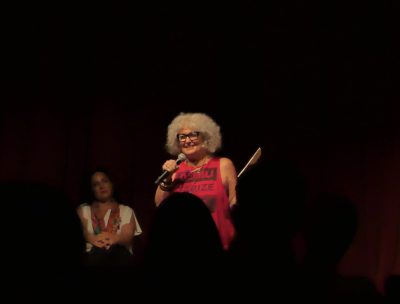 It’s July which means we have collectively endured 7 months of uncertainty, turmoil, darkness, and light. America, we are still battling all aspects of the virus: rising numbers of infected, those that deny its existence, those refusing to wear masks to help to stop the spread, and everyone else doing their duty by staying at home, washing their hands, and wearing masks. Yet, something else has added to the mix and the COVID19 pandemic; social media. Social media has taken on a whole new level for activism and resistance.
It’s July which means we have collectively endured 7 months of uncertainty, turmoil, darkness, and light. America, we are still battling all aspects of the virus: rising numbers of infected, those that deny its existence, those refusing to wear masks to help to stop the spread, and everyone else doing their duty by staying at home, washing their hands, and wearing masks. Yet, something else has added to the mix and the COVID19 pandemic; social media. Social media has taken on a whole new level for activism and resistance.
Tag: Revolution
Community and Social Distancing by Gina Messina
Our commitment should be to the wellbeing of all; our own wellbeing is dependent upon it. This virus does not recognize borders or walls, nor racial or religious divides. Oppressive structures have caused our communities to crumble; and yet, it is only through a collaborative community effort that we can hope to “flatten the curve.”
 We are in the midst of a global crisis unlike anything we’ve seen during our lifetime. Admittedly, I gave the situation little attention, even when relatives were under forced quarantine in Italy and cases were piling up in California where many of my family and friends live. It’s typical; we often don’t realize the seriousness of a particular issue until it is one we experience ourselves — we can empathize, but can’t fully understand something that hasn’t hit home.
We are in the midst of a global crisis unlike anything we’ve seen during our lifetime. Admittedly, I gave the situation little attention, even when relatives were under forced quarantine in Italy and cases were piling up in California where many of my family and friends live. It’s typical; we often don’t realize the seriousness of a particular issue until it is one we experience ourselves — we can empathize, but can’t fully understand something that hasn’t hit home.
I wasn’t afraid when the NBA suspended its season, or when March Madness was canceled. When I received an email that a child at my daughter’s school had been quarantined, I told myself it was precautionary. Still, when a neighbor who is a nurse in an ER had provided care to a patient who tested positive for COVID-19, I thought how scary it must be for her — but assumed that nurses of all people know how to protect themselves from getting sick.
Once school was suspended in my state and people started to panic, buying up every last roll of toilet paper and hand sanitizer pump, my concern was not COVID-19, but instead what I deemed overreaction. Nonetheless, I jumped on the bandwagon and stocked my pantry just in case…although I was too late for the toilet paper. Continue reading “Community and Social Distancing by Gina Messina”
Dialogue as Revolution by Gina Messina
It was through these many conversations that I continued a dialogue with myself about my own role in the divisive nature of our relationships and the need to acknowledge individual identity and lived experience in relation to one’s perspective.
 Over this past year, I’ve been in an uncomfortable place of searching and growth. Challenges and life transformations have left me struggling with my own identity, beliefs, and values and I continue to grapple with questions feeling a bit lost in this destructive world of political civil war here in the U.S. Having the privilege to teach, speak, and write publicly about my ideas, I have been particularly focused on is whether I am part of the problem or the solution.
Over this past year, I’ve been in an uncomfortable place of searching and growth. Challenges and life transformations have left me struggling with my own identity, beliefs, and values and I continue to grapple with questions feeling a bit lost in this destructive world of political civil war here in the U.S. Having the privilege to teach, speak, and write publicly about my ideas, I have been particularly focused on is whether I am part of the problem or the solution.
Recently, I was humbled to deliver the 40th Annual Nash Lecture at Campion College; a Catholic Jesuit institution at the University of Regina in Saskatchewan, Canada. My visit to Campion was soul feeding. I met incredible scholars, administrators, students, and community members who embraced me with generosity and compassion. I felt overwhelmed — in a positive way — by the spirit of hospitality and friendship and was impressed by the inquisitive, articulate, and respectful students who were enthusiastic to connect with me and further explore their own questions about feminism and faith. Continue reading “Dialogue as Revolution by Gina Messina”
A Meditation on Revolution In the Vagina Monologues by Marie Cartier

“It’s like feminist summer camp, except it’s in February,” said Shaina, the director, “I’m not sure how to re-enter the world.”
I agreed. How to re-enter the world where vaginas have little voice? Where asking a woman what her vagina would wear does not make sense. Or what would it say? It’s not just what would it say, it’s not having a voice at all. My vagina.
I have performed in West Hollywood, California’s production of the Vagina Monologues (to benefit Planned Parenthood, check it out here and here) for the past three years. This year we raised over $5,000.
Continue reading “A Meditation on Revolution In the Vagina Monologues by Marie Cartier”
How Does Goddess Change the World? by Xochitl Alvizo
It can only be that She begins in a small way at a single place in the world. It can only be that She begins within us.
Carol Christ’s post this week made me think of a favorite little passage I love from a Catholic theologian, Gerhard Lohfink, who wrote a book about whether God needs the church. I’m not going to engage that specific question here nor am I going to talk about the ins and outs of the book. I simply mention it because it holds within it the beautiful passage that deeply resonates with me and has become the primary image I hold on to when thinking about how I want to participate in the transformation of the world. The passage comes from a part of the book where Gerhard Lohfink muses about how God would start a revolution while still respecting human freedom and participation:
God, like all revolutionaries, desires the overturning, the radical alteration of the whole society – for in this the revolutionaries are right: what is at stake is the whole world, and the change must be radical, for the misery of the world cries to heaven and it begins deep within the human heart. But how can anyone change the world and society at its roots without taking away freedom? (Lohfink, 26)
The issue is that for centuries people have tried and tried again to change the world, to ‘free the masses’ and save people from suffering, misery, and oppression – but too often revolutionaries resort to violence as their means. The systems are so rigidly and stubbornly in place that the revolutionary comes to see no other way to bring about radical social change except through a widespread violent overthrow. Continue reading “How Does Goddess Change the World? by Xochitl Alvizo”


